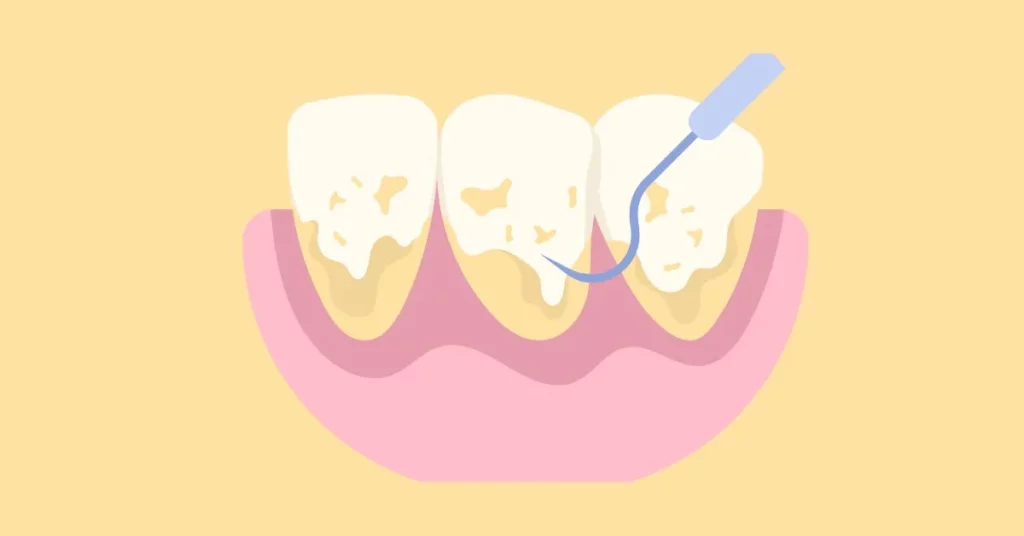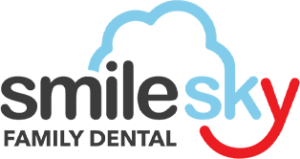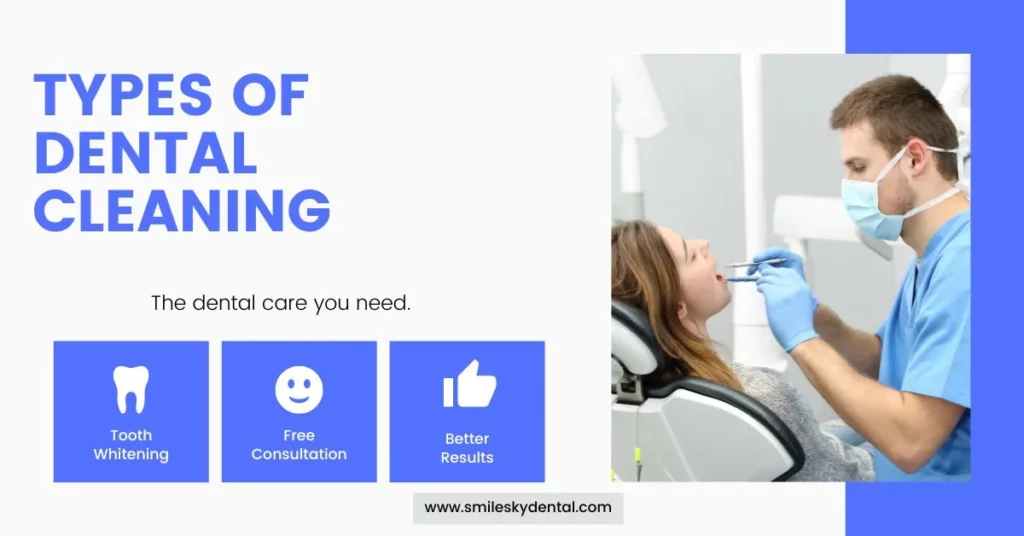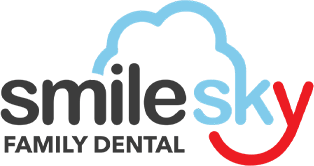Knowing different types of dental cleaning is important. It helps you select the right procedure for you and the one you feel comfortable with. To maintain proper oral hygiene, dental cleaning is important. It involves cleaning the teeth and gums of waste such as plaque, tartar, and other buildup.
Dental cleaning techniques come in a variety of forms with varying levels of intensity and intent. Knowing the various dental cleaning procedures will enable you to select the best one for your needs and maintain the health of your teeth and gums.
Different Types of Dental Cleanings
There are different types of dental cleanings that are tailored to meet individual needs. These include
-
- Prophylaxis Cleaning
-
- Full Mouth Debridement
-
- Deep Cleaning
-
- Periodontal Cleaning
Prophylaxis Cleaning
A type of dental cleaning called a prophylaxis cleaning, commonly referred to as a “routine cleaning,” is carried out as a prophylactic precaution to uphold good oral health. For those with healthy gums and teeth, this form of cleaning is normally advised every six months. For those with a history of gum disease, periodontal teeth cleaning may be recommended more frequently.
The dentist or hygienist will use specialized instruments, including a water jet, during prophylaxis cleaning to remove plaque, tartar, and stains from the teeth. This is done to stop the growth of oral bacteria, which can cause tooth decay, gum disease, and other problems with oral health.
Full Mouth Debridement
An extensive buildup of plaque and tartar on the teeth and gums calls for a complete mouth debridement. It is also a sort of dental cleaning. Enabling a complete examination of the teeth and gums involves removing the buildup of plaque and tartar.
Deep Cleaning

Gum disease is treated by deep cleaning. It is a more thorough tooth-cleaning method. To stop additional buildup, it involves removing plaque and tartar from both above and below the gum line and smoothing off any rough areas on the teeth. Deep cleaning is frequently performed in two sessions, one for each half of the mouth to ensure patient comfort
.
Periodontal Cleaning
Scaling and root planning, commonly referred to as periodontal teeth cleaning, is a type of dental cleaning used to treat gum disease. Patients with advanced gum disease or periodontitis are often advised to have periodontal cleaning.
In this technique, plaque, tartar, and bacteria will be taken out from both above and below the gum line using specialized equipment that the dentist or hygienist would use during periodontal cleaning. This promotes the recovery of gum tissue and stops additional harm to the teeth and gums.
Full Mouth Debridement Vs Deep Cleaning
Deep cleaning and full mouth debridement are two distinct dental cleaning procedures that are carried out for various purposes. Now, let’s explore the contrasting aspects of debridement dental vs deep cleaning to understand their unique characteristics.
Full Mouth Debridement
-
- Patients who have not had a professional cleaning in years or who have a large quantity of plaque on their teeth may consider this treatment.
-
- It is used to thoroughly clean the teeth and gums of a substantial quantity of plaque, tartar, or calculus accumulation
-
- Usually finished in a single visit
-
- Afterwards, a thorough dental examination is performed to establish the course of the treatment.
Deep Cleaning
-
- Recommended for people with periodontal disease
-
- Involves cleaning the teeth’s roots of any rough places and removing plaque and tartar from below the gum line.
-
- For patient comfort, local anesthesia might be used.
-
- Usually requires two or more appointments, with each appointment concentrating on a different area of the mouth.
Types Of Dental Cleaning
-
- Examination and Assessment
-
- Removal of Plaque and Tartar
-
- Polishing of the Teeth
-
- Fluoride Treatment
FAQs
How long does a dental exam take?
Depending on its length and whether X-rays are required, a dental exam usually lasts between 30 minutes and an hour.
What is the frequency of dental cleanings?
The frequency of dental cleanings varies depending on the individual. In general, people should have dental cleaning at least twice a year. Although, if they have gum disease or other oral problems, some people may need more frequent cleanings.
How many types of dental cleanings are there?
Prophylaxis cleaning, scaling and root planing, full mouth debridement, and periodontal maintenance cleaning are a few examples of the various dental cleaning methods. The sort of cleaning that is advised will depend on the person’s dental health needs.
How many types of dental cleaning are there?
Prophylaxis cleaning, scaling and root planing (deep cleaning), full mouth debridement, and periodontal maintenance cleaning are the four most common types of dental cleaning.
How often should you get routine checkups at the dentist?
For optimal oral health, it is recommended to schedule an annual dental checkup and cleaning. Routine checkups and cleanings can help prevent major oral health problems.
Recap
In conclusion, maintaining good dental health is important for your entire health. In order to best serve each patient’s particular needs, a variety of dental cleaning treatments are offered.
At Smile Sky Dental, we’re dedicated to giving each and every one of our patients the best possible dental care. To assist you in achieving optimal oral health, our skilled and welcoming dental staff provides a variety of procedures, including routine cleanings, thorough cleanings, and periodontal maintenance cleanings.
So don’t look any further if you’re seeking professional dental cleaning. Schedule a dental cleaning appointment with us right away to begin your journey to a happier, healthier smile.


